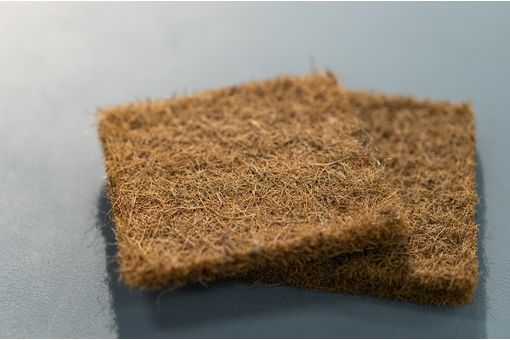Interviews
Cheap imports leave Nigerian textile sector tottering
23 Jun '15
3 min read
Nigeria is staring at rising discontent in the country’s textile industry as cheap imports, particularly from China, are driving local textile traders out of business.
A chronic power shortage and a rise in production costs are also making things difficult in Kano, the country’s biggest city in the north, according to media reports.
Dilapidated textile factories in another northern city - Kaduna are what remain of Nigeria’s most important manufacturing industry, which in its heyday employed 350,000 people. The World Bank estimates that textiles smuggled into Nigeria through Benin are worth $2.2 billion a year, compared with local Nigerian production, which has dropped to $40 million annually.
Nigerians are desperate for a turnaround. Ahaji Dikko Abdullahi, Comptroller General of Customs in Nigeria, has stressed on the need to revive the Nigerian textile sector especially in the area of job creation.
Abdullahi said that the country’s textile sector should be given a fillip, following the drop in oil revenue, in a bid to gainfully engage Nigerian youth to develop their skills. The customs head urged locals to iron out plans to revive the textile industry in order to secure the future of the country.
“The political stability of a country is determined by its economy; we will support sectors that invest capital to expand and improve employment of youths,” said Abdullahi.
The Nigeria Customs Service has also been fighting off piracy and illegal activities taking place in the textile sector.
Although several factories have benefited from a $500 million government intervention to revive the country's textile industry, manufacturers say that monetary support alone will not fix the problem.
The power situation is disastrous and the business environment is not quite up to the mark to compete with Chinese imports, say local textile manufacturers and traders.
In the face of stiff Asian competition, manufacturers are asking for government protection.
Traders, on the other hand, want a quick propping up of the local currency naira (which had been devalued) to make imports affordable.
The troubles began a decade ago when Chinese textile merchants started the massive importation of textiles to Nigeria after Africa's most populous nation opened its doors to foreign trade.
The World Trade Organisation (WTO) deal gave the Chinese unfettered access to Nigeria's textile market, although Nigerian laws prohibit foreigners from retail trading. Traders talk of locals being recruited to conduct business on behalf of the Chinese in return for a cut of the profits. (SH)
A chronic power shortage and a rise in production costs are also making things difficult in Kano, the country’s biggest city in the north, according to media reports.
Dilapidated textile factories in another northern city - Kaduna are what remain of Nigeria’s most important manufacturing industry, which in its heyday employed 350,000 people. The World Bank estimates that textiles smuggled into Nigeria through Benin are worth $2.2 billion a year, compared with local Nigerian production, which has dropped to $40 million annually.
Nigerians are desperate for a turnaround. Ahaji Dikko Abdullahi, Comptroller General of Customs in Nigeria, has stressed on the need to revive the Nigerian textile sector especially in the area of job creation.
Abdullahi said that the country’s textile sector should be given a fillip, following the drop in oil revenue, in a bid to gainfully engage Nigerian youth to develop their skills. The customs head urged locals to iron out plans to revive the textile industry in order to secure the future of the country.
“The political stability of a country is determined by its economy; we will support sectors that invest capital to expand and improve employment of youths,” said Abdullahi.
The Nigeria Customs Service has also been fighting off piracy and illegal activities taking place in the textile sector.
Although several factories have benefited from a $500 million government intervention to revive the country's textile industry, manufacturers say that monetary support alone will not fix the problem.
The power situation is disastrous and the business environment is not quite up to the mark to compete with Chinese imports, say local textile manufacturers and traders.
In the face of stiff Asian competition, manufacturers are asking for government protection.
Traders, on the other hand, want a quick propping up of the local currency naira (which had been devalued) to make imports affordable.
The troubles began a decade ago when Chinese textile merchants started the massive importation of textiles to Nigeria after Africa's most populous nation opened its doors to foreign trade.
The World Trade Organisation (WTO) deal gave the Chinese unfettered access to Nigeria's textile market, although Nigerian laws prohibit foreigners from retail trading. Traders talk of locals being recruited to conduct business on behalf of the Chinese in return for a cut of the profits. (SH)
Fibre2fashion News Desk – India
Popular News
Leave your Comments
Editor’s Pick
Folker Stachetzki
Brother Internationale Industriemaschinen GmbH
Amritha Ram
Brand - KH House of Khaddar
































-Ltd..jpg?tr=w-120,h-60,c-at_max,cm-pad_resize,bg-ffffff)





.jpg?tr=w-120,h-60,c-at_max,cm-pad_resize,bg-ffffff)
.jpg?tr=w-120,h-60,c-at_max,cm-pad_resize,bg-ffffff)






